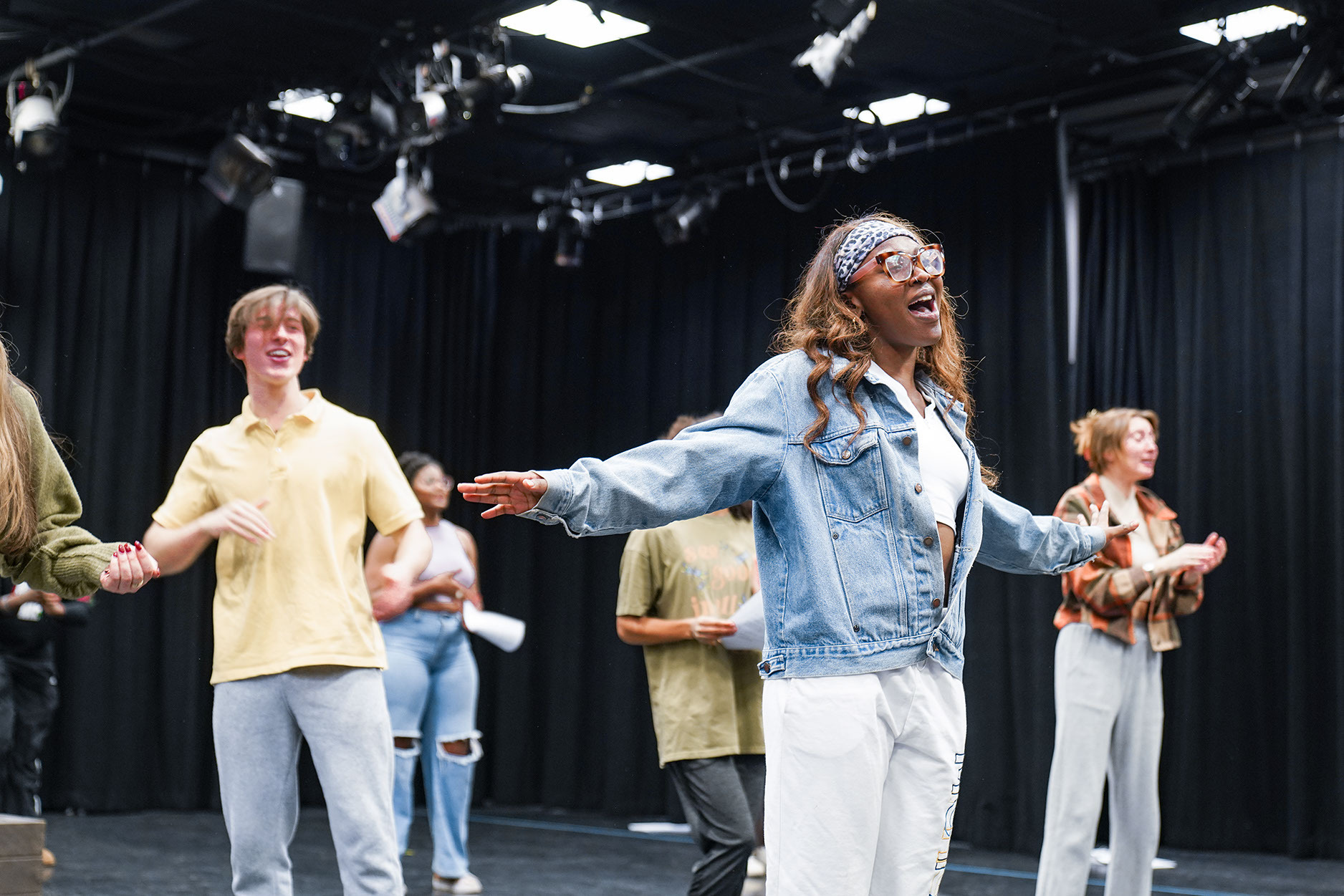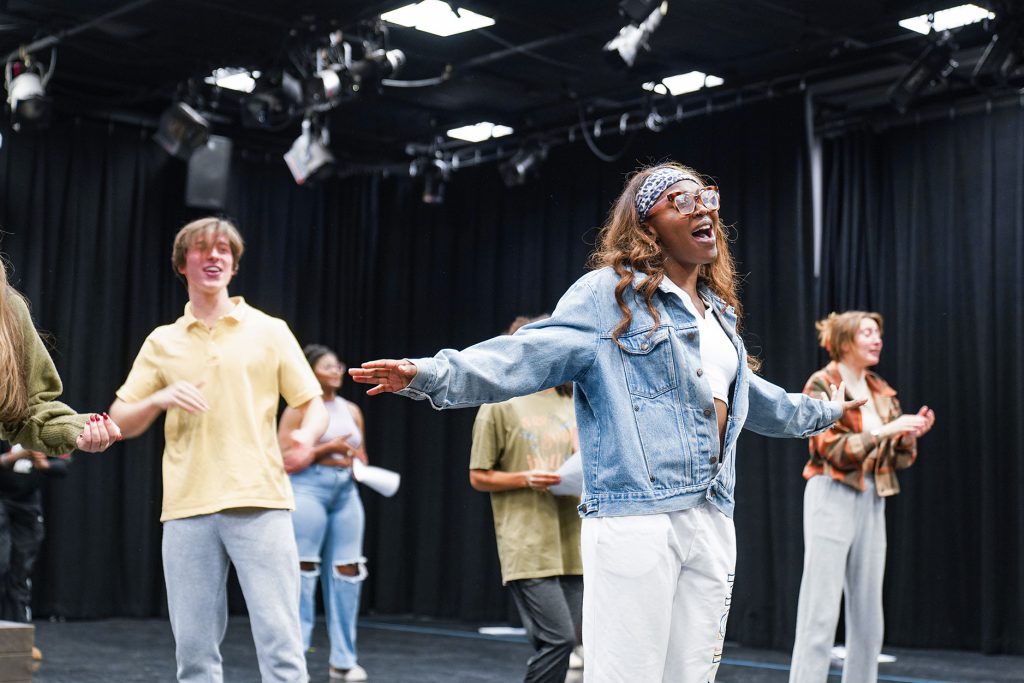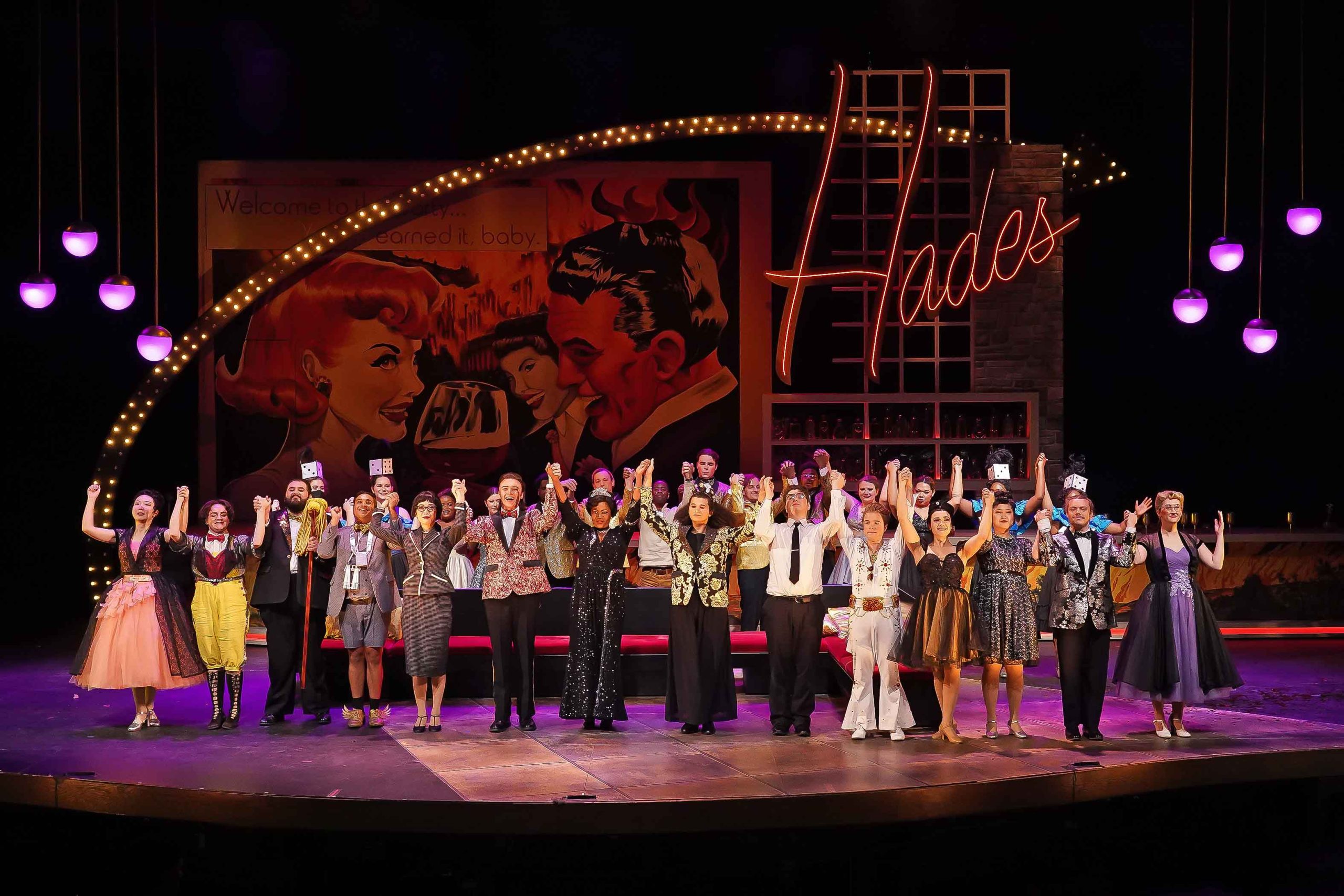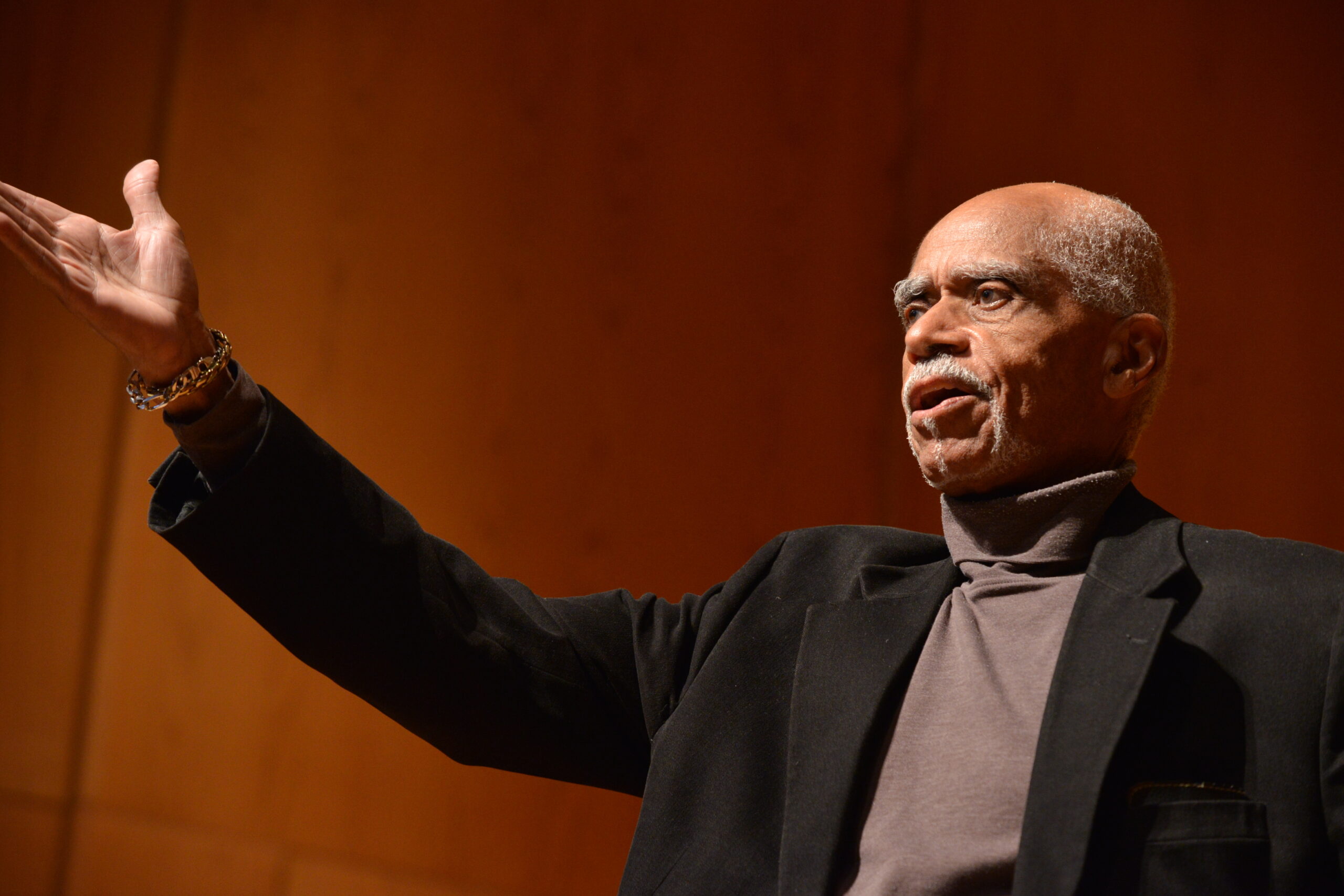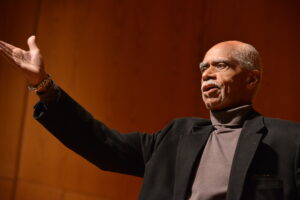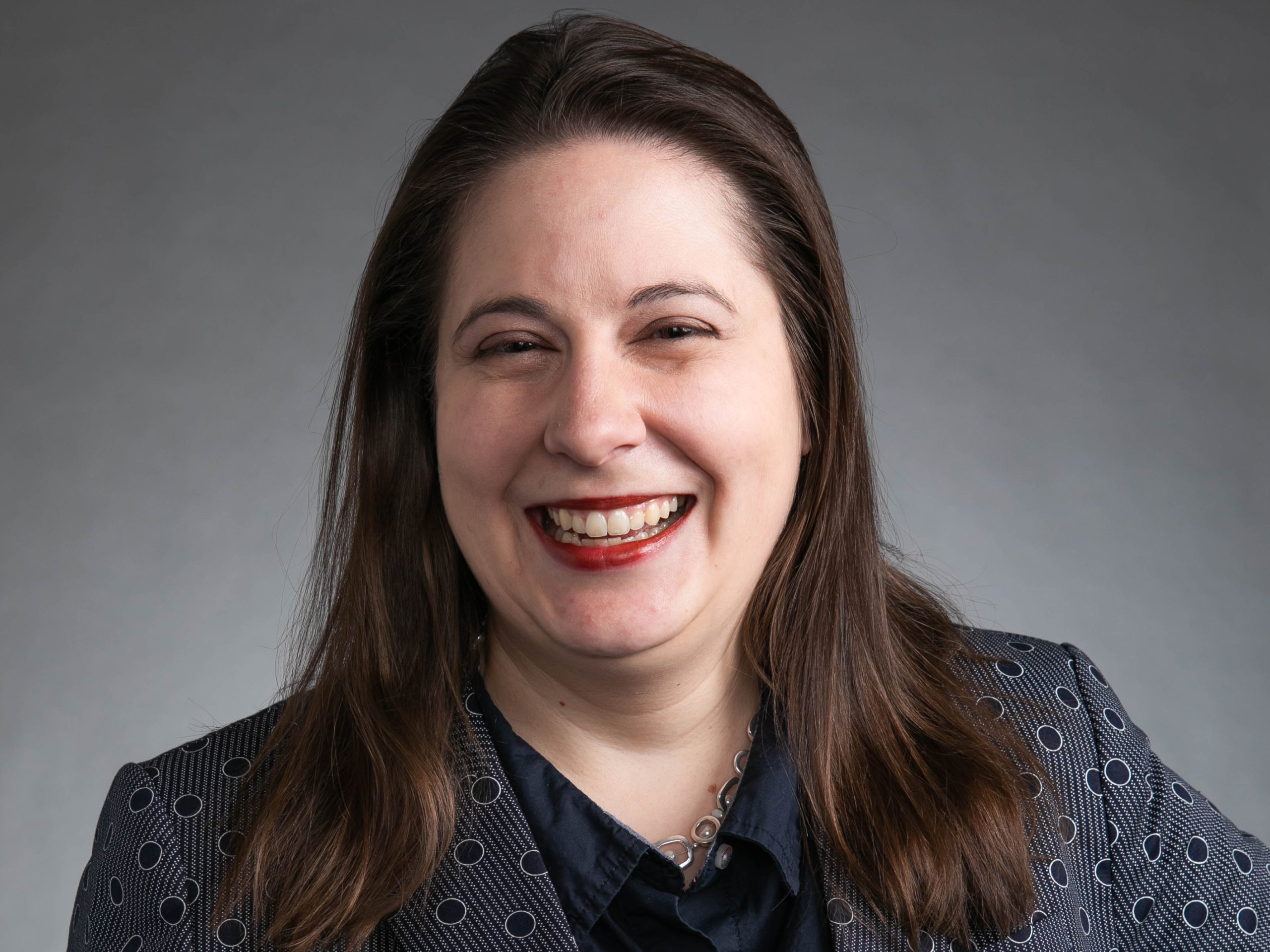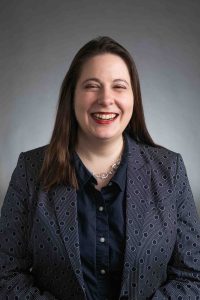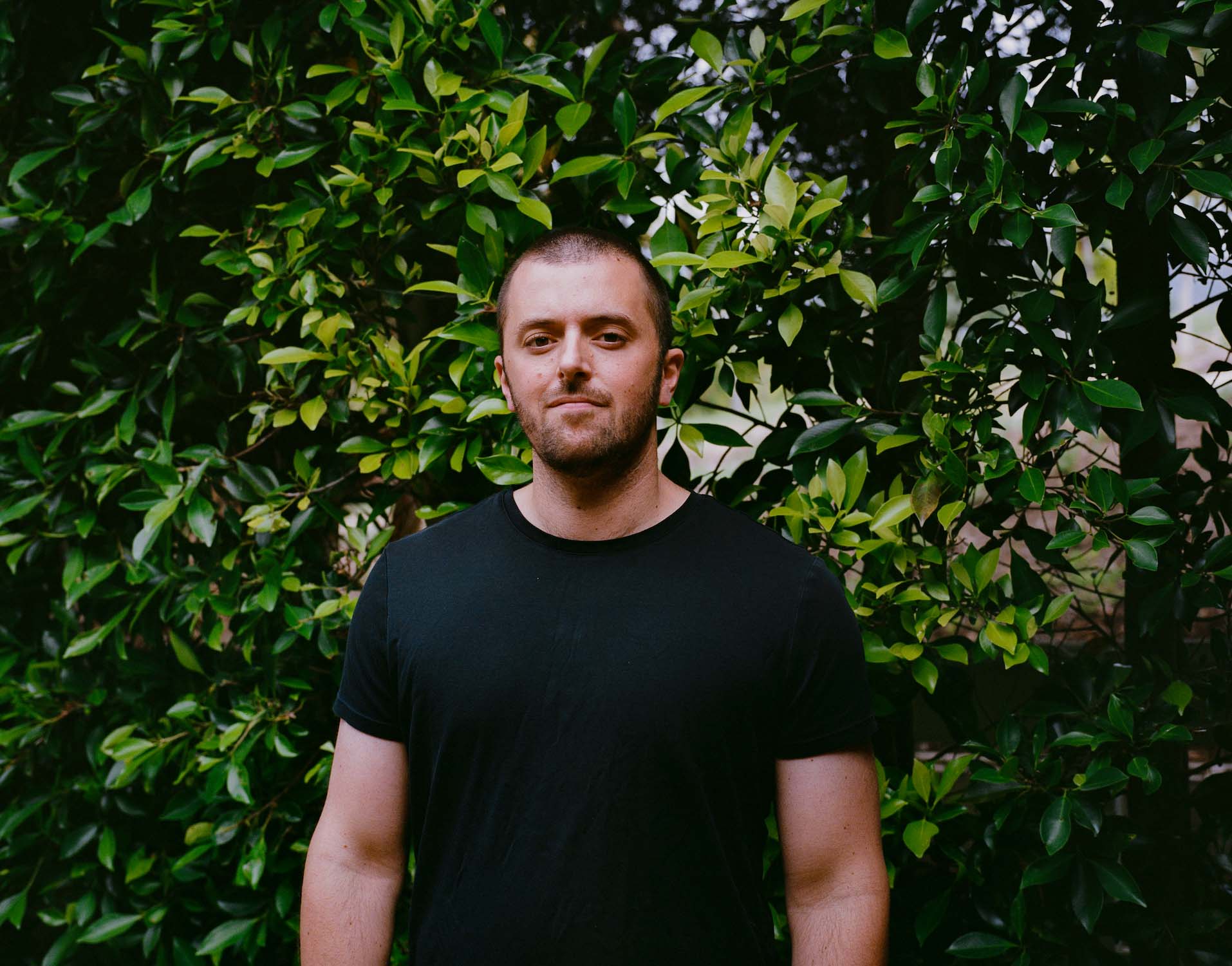Michigan Muse Winter 2024 > View from the Pond
View from the Pond
Helping to Reinvent the Musical Theatre Canon
The Department of Musical Theatre, like departments throughout SMTD, puts a great deal of emphasis on the development of new works, both in terms of nurturing the talents of student creators and in giving students opportunities to work alongside creative teams as they bring new works to life.
So when Professor Lynne Shankel was contacted during summer 2023 about an opportunity for SMTD to host a creative team developing a new musical, she leapt at the chance. Executive producer Randy Donaldson had an idea for a residency in Ann Arbor to workshop Marian – a musical about the life of groundbreaking Black American opera singer and activist Marian Anderson – with SMTD students and faculty.
In November, musical theatre students and faculty spent two weeks working with Donaldson, Tamara Tunie (the director), Chelsea Davis, Elkin Antoniou G, and Caleen Jennings, helping to develop this musical in real time. Marian was conceived by Antoniou, Davis, and Jennings; the music is by Davis and Victoria Theodore; lyrics are by Davis and Emily Ruth Hazel; and the book is by Jennings and Antoniou. Also participating were two special guests – George Shirley and Willis Patterson, professors emeriti who worked with Marian Anderson directly.
“It’s so important that our students are exposed to the process of working on new pieces of musical theatre,” noted Shankel. “It’s what they will spend an incredible amount of time doing in their careers if their paths take them to New York.” This residency was a partnership between SMTD and Liquid Theatre Collective, which holds the exclusive musical stage rights to the Marian Anderson Archival Estate. It was made possible by support from the Arts Initiative, the Benard L. Maas Foundation, the Carole Caplan Lonner Visiting Artists Fund, the Friends of Musical Theatre, and the Musical Theatre Enrichment Fund.
And on December 13th, the Department of Musical Theatre held another event that celebrated its commitment to broadening the theatrical canon and training students to become musical theatre composers. The event was the inauguration of the Carole Caplan Lonner Professorship, which was presented to Shankel by President Santa J. Ono. Shankel, a composer, lyricist, arranger, and orchestrator, was instrumental in the development of and oversees the musical theatre composition minor, formally known as the Carole Caplan Lonner Musical Theatre Writing Program.
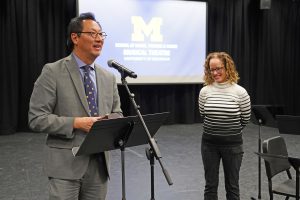
The musical theatre composition minor and professorship are named in tribute to Carole Caplan Lonner by her daughters, Jane Och (Ross, ’86) and Nancy Bernstein (Stamps, ’83). The gift to establish the Carole Caplan Lonner Musical Theatre Writing Program includes this endowed professorship as well as the visiting artists fund that supported the Marian residency; it was made possible by the Jane and Daniel Och Family Foundation and the David and Carole Caplan Charitable Foundation.
At the December event, which was attended by Och and Bernstein as well as Dean David Gier, the work of current musical theatre composition students was featured. There were presentations of two fifteen-minute musicals, individual songwriting projects, and a performance of a song from Marian. Speaking at the inauguration of the professorship, Shankel said, “I look forward to continuing to grow and innovate the composition minor and fostering the development of the next generation of musical theatre writers, who will inevitably reinvent the canon in the most exciting ways.”
Department of Voice Becomes Department of Voice & Opera

As of January 2024, the Department of Voice has officially been renamed the Department of Voice & Opera.
“This change not only speaks to the spirit and essence of our department but also reflects the success of our alumni, who have thrived in their careers due to the holistic education they received here,” said Scott Piper, department chair and Norma L. Heyde Faculty Development Professor.
Opera has long been a significant component of the department’s activities and curriculum, and in recent years the faculty began discussing the importance of having the department name more accurately reflect its full scope. The addition of the word “opera” in the name better reflects its inclusive approach and acknowledges the broad skills and diverse expertise of the faculty, including stage directors, coaches, and conductors.
The name change will also be significant for current and prospective students, indicating the importance of opera as a field of study and an avenue for performance alongside other aspects of the vocal arts. The department stated that “a significant majority of prospective students routinely inquire about opera opportunities at SMTD, suggesting that opera is a strong driver of recruitment and an important component of the career aspirations for many young singers.”
Piper heralded the start of “an exciting new chapter that will celebrate the vibrancy and diversity that define our history of achievement. We are confident that this change will pave the way for a future filled with innovation, collaboration, and continued success.”
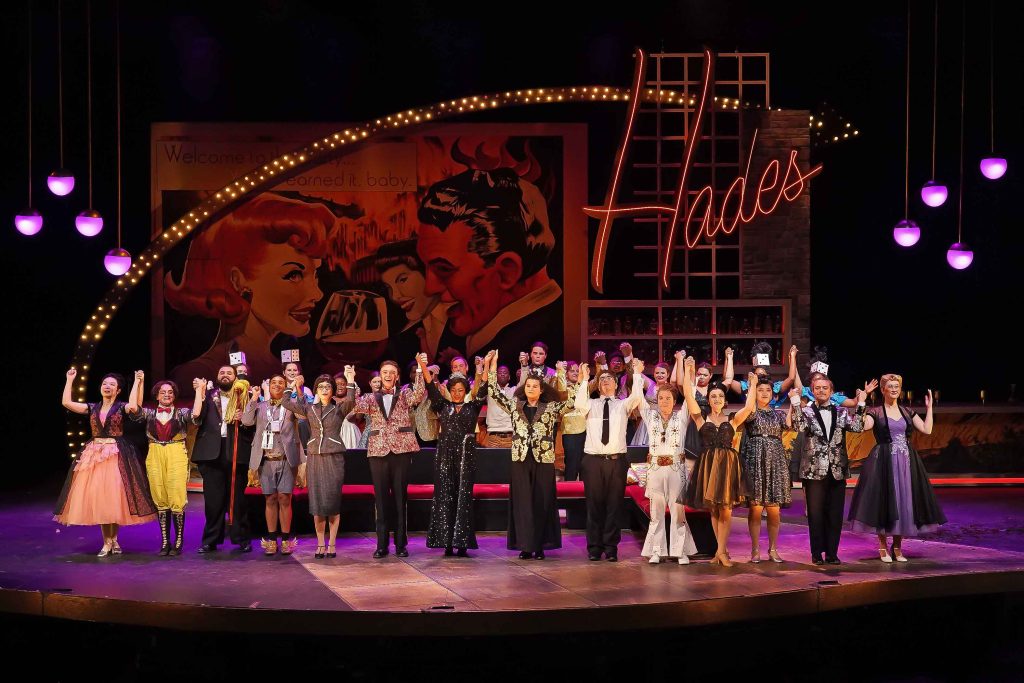
George Shirley Celebrates His 90th Birthday as His Namesake Vocal Competition Moves to SMTD
Spring 2024 will be a busy season for George Shirley, Joseph Edgar Maddy Distinguished University Emeritus Professor of Voice. On April 19, in Stamps Auditorium, the esteemed operatic tenor will celebrate his 90th birthday with a little help from his many friends at SMTD and beyond, who will honor this milestone with speeches and performances.
Later in April, Shirley will give a speech of his own, as the guest speaker at SMTD’s spring commencement ceremony. And in May, the annual George Shirley Vocal Competition (GSVC) will be held at SMTD. This prestigious competition recently transitioned its operations to SMTD, and in order to guarantee that it has a permanent home at SMTD, the school seeks to sustain the GSVC in perpetuity with an endowment.
Co-founded by Shirley in 2011, the George Shirley Vocal Competition: African American Vocal Repertoire is an extension of Shirley’s longtime commitment to mentoring future operatic artists. The GSVC is the only vocal competition in the nation to focus exclusively on teaching, promoting, and preserving the African American and African diasporic vocal repertoire. The competition enables singers to compete in several divisions, including an international category, and it also includes a division for composers. Since its inception, the GSVC has been directed by Louise Toppin (DMA ’90), professor of music, who co-founded the GSVC with Shirley, her former professor and mentor. Toppin has enjoyed an illustrious performing and recording career as an in-demand soprano, while simultaneously pursuing her career as an educator and scholar. She received U-M’s Distinguished Faculty Achievement Award in 2021.

Shirley began teaching at U-M’s School of Music in 1987, following more than 30 years of trailblazing firsts: the first African American appointed to a high school teaching position in vocal music in Detroit; the first African American member of the US Army Chorus in Washington, DC; and the first African American tenor (and second African American male) to sing leading roles with the Metropolitan Opera, where he was a prominent artist for 11 years. Shirley has also won acclaim for his performances in many of the other great opera houses in cities around the world, from London to Berlin to Buenos Aires. Among the many awards and accolades that Shirley has received is the Congressional Medal of the Arts, presented by President Barack Obama in 2014, and a Grammy Award in 1968 for the role of Ferrando in the RCA recording of Mozart’s Così fan tutte.
Q&A with Mica Harrison Loosemore
In November 2023, Mica Harrison Loosemore joined SMTD as the new assistant dean of admissions, financial aid & enrollment management, diving directly into the deep end of the current admissions cycle. Fortunately, her previous experience prepared her well for this new role. Loosemore previously served as the director of recruitment at Carnegie Mellon University’s Office of Admission; prior to that role, she spent four years as the inaugural director of recruitment and enrollment in Carnegie Mellon’s School of Drama. She also worked for seven years at Interlochen Center for the Arts in northern Michigan, with positions in academy residence life, admissions, and the costume department. Below, she explains her approach to the admissions process and offers advice to prospective students.
What appeals to you about working in admissions?
I love the opportunity to work with prospective students as they consider their futures. It is such an exciting time to be thinking about what you want to do and who you want to be. It can also be a very confusing time – there are a lot of deadlines and so many aspects of the application process to organize. I was fortunate to have two parents in education who understood enough about the process to help guide me through it while I applied to BFA programs; however, not everyone has that resource. I enjoy fostering an environment that helps prospective students navigate the process so they can take the time they need to consider who they are as an artist.
What are your priorities in your role as assistant dean of admissions, financial aid & enrollment management at SMTD?
I believe in a student-centric process. Everything we do at all parts of this process is for the student artist. When we prioritize their experience and what is best for them, the rest falls into place.
In our mission at SMTD, we strive to create an environment that nurtures creativity and serves the community. Those are two guiding principles for me in my role. To that end, my priorities include developing community both here on campus and within the greater state of Michigan, allowing as many talented students as possible to have access to this incredible educational opportunity, developing sustainable practices for our school, and nurturing outreach for future prospective students.
You’re in the midst of your first admissions cycle with SMTD – how are things going so far?
So far, so good! Starting in November means jumping right in. I am grateful for the opportunities I’ve had so far to get to know our faculty and to work closely with my team to become familiar with our processes. One of the biggest challenges we face involves the national changes with FAFSA, but we have an excellent team of financial aid folks right here in SMTD who are working diligently to make sure we are as prepared as possible to help our students through this cycle.
What advice would you give to someone considering applying to SMTD?
Be yourself. Think about what you want to learn and what kind of community will best allow you to become the kind of artist you want to be. We offer a wide array of opportunities, providing a small conservatory-style education at a large, world-class research university, so you can have the best of both worlds in your college experience with us.
SMTD Community Well Represented in Grammy and Oscar Nominations
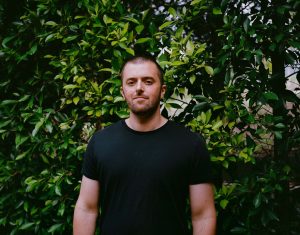
When the 66th Grammy Awards show aired on February 4th, several people in the SMTD community were among the nominees.
Rob Bisel (BS ’14, sound engineering) served as a producer, songwriter, instrumentalist, engineer, and mixer on SZA’s album SOS, which won the Grammy Award for Best Progressive R&B Album and included two songs that were honored: “Ghost in the Machine” by SZA and featuring Phoebe Bridgers took the award for Best Pop Duo/Group Performance, and “Snooze” was named Best R&B Song.
Mark Dover (BM ’09, clarinet) also won a Grammy in 2024. As part of Imani Winds, Dover was recognized as a performer and producer in Best Classical Compendium for Passion for Bach and Coltrane.
Others in the SMTD community who received Grammy nominations include David T. Little (MM ’02, composition), whose album Black Lodge was nominated for Best Opera Recording; Bob James (BM ’61, MM ’63, composition), whose album Jazz Hands was nominated for Best Contemporary Instrumental Album; and Christopher Rountree (MM ’09, orchestral conducting), who is the conductor of Julius Eastman, Vol. 3: If You’re So Smart, Why Aren’t You Rich?, nominated for Best Classical Compendium.
Several former SMTD students were members of the casts or producing team of musicals nominated in the Best Musical Theater Album category. Olivia Elease Hardy (attended ’21) and Nina White (BFA ’20, musical theatre) were cast members in Kimberly Akimbo, and John Rapson (BFA ’09, musical theatre) was a cast member in Sweeney Todd: The Demon Barber of Fleet Street, which was produced by U-M alumnus Jeffrey Seller.
Additionally, Chauntee Ross (attended, ’13) and her sister Monique Ross, collectively known as SistaStrings, supplied backing vocals and strings for Joni Mitchell’s performance of “Both Sides Now” during the ceremony.
The 2024 Academy Award nominations honored work done by a number of SMTD alumni. Laura Karpman (BM ’80, composition) received an Oscar nomination for Original Score for her work on American Fiction. Additionally, several SMTD alumni were part of the casts of Best Picture nominees, including Maestro, Oppenheimer, and American Fiction. And the song “Chinesische Straßenserenade,” performed by SMTD students in the Music from Auschwitz Ensemble, was featured in the International Feature Film and Best Picture nominee The Zone of Interest.


